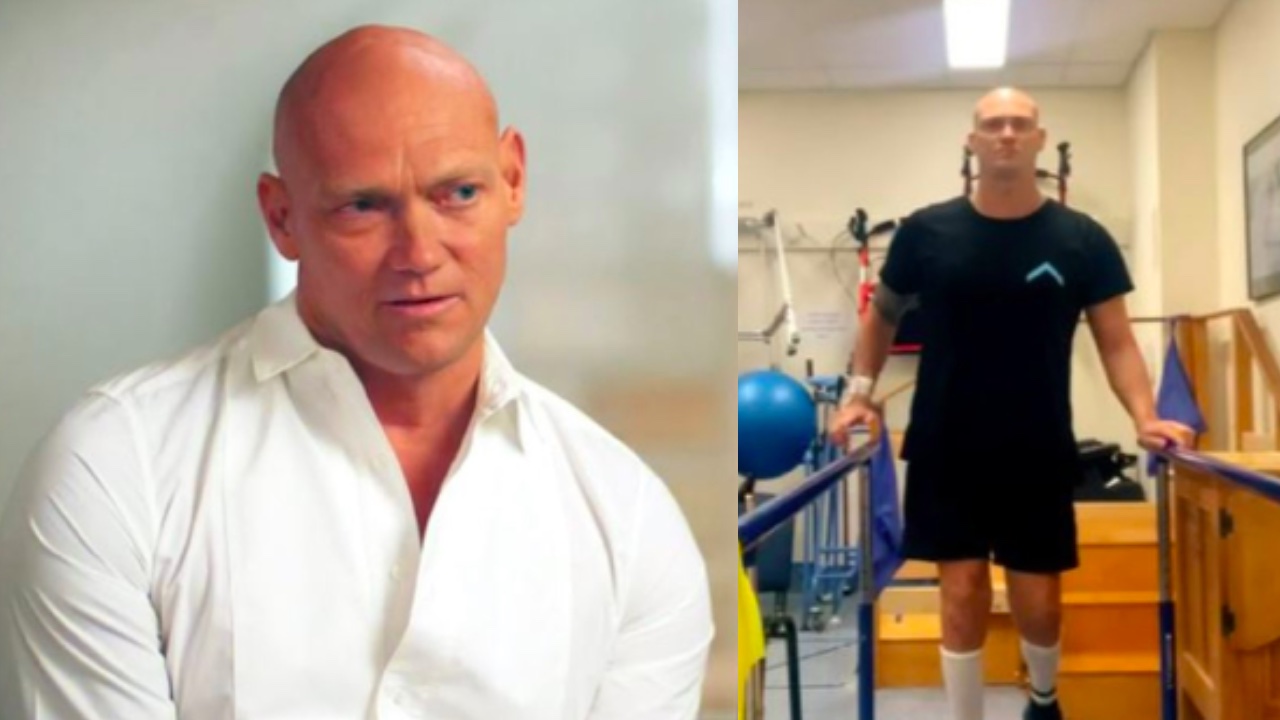Michael Klim's devastating health battle

Olympic gold medallist Michael Klim has opened up about his devastating health battle for the first time, sharing how his diagnosis changed his life.
The 44-year-old opened up to Lisa Wilkinson on Sunday night’s The Project about his chronic inflammatory demyelinating polyneuropathy (CIDP) diagnosis.
It’s a rare type of auto-immune disorder where the body attacks the myelin sheaths — the fatty coverings on the fibres that insulate and protect the nerves.
Michael first started to notice symptoms in 2019, when his condition progressed rapidly, leaving him struggling to walk and dependant on a walking stick or braces for support.
He has now lost sensation in both his feet, with minimal function affecting his everyday life.
Drastic muscle wastage has also caused Klim to collapse in front of his children, as he admitted to Wilkinson, "I might end up in a wheelchair."
He said, “People that I’ve told, or I have spoken to about my CIDP, they’ve said oh, you’re an Olympic athlete you’ve got that mental strength to get you through this.”
“And it actually hasn’t necessarily been the case. It’s not like I can do extra exercises or this or that. If anything, I’ve been more despondent about it. And it’s more depressing."
“And, you know, I’ve gone through phases where even I drink too much and try to numb the pain.”
Klim recalled a difficult experience at the airport which left him feeling vulnerable and shaken.
“I literally had to sit down on the floor. There were no seats through the airport. And I’ve called Michelle and I was literally in tears because I couldn’t pinpoint what it was."
“That was probably one of the scariest moments I had. For me, my ability to do anything physical was something that I used to pride myself on."
“And it used to give me mental strength. And, bit by bit, was being taken away.”
As his condition continued to deteriorate at the beginning of 2022, Michael admitted "something had to give" in June, when he made the decision to fly from his home in Bali to Sydney to undergo a back operation to release trapped nerves, rehabilitation and IVIG (intravenous immunoglobulin) treatments at RPA hospital to treat his condition.
Since the treatment, along with drastic changes in his lifestyle, his condition has stabilised.
“Look, initially, I was thinking, ‘Why was I dealt this card?’ I was feeling sorry for myself. And I almost felt like this was punishment for something,” he said.
“I’d give myself about an hour a day to feel sorry and angry and frustrated and whatever else other emotion comes into my mind, and then move on with the rest of life."
“I always thought I’d end up getting a full recovery. But I haven’t had, exactly, a recovery. I’ve sort of levelled – well, I got worse, then I got a little bit better, but I’ve just plateaued out.”
Image credits: The Project
